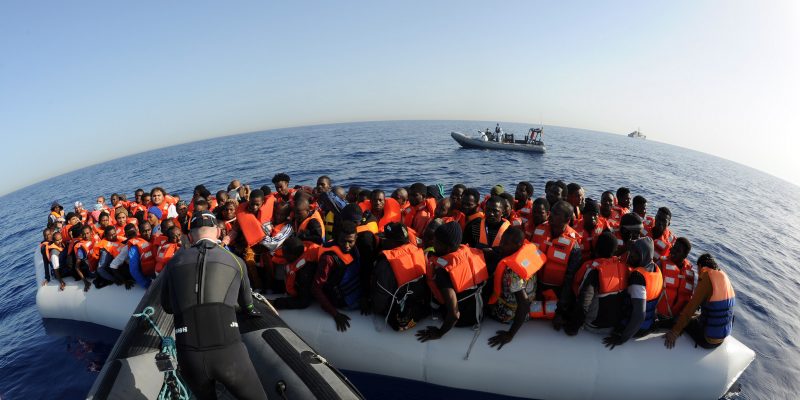1. What is behind the witch-hunt on NGOs saving migrants in the Mediterranean?
Attacks are not stopping against the humanitarian organisations carrying out search and rescue operations in the Mediterranean, which are being accused – without any formal charge or a shred of evidence – of operating as a “taxi service” to human traffickers. Read Leonardo Bianchi’s article in Vice (in addition to the article in Il Post and Lorenzo Maria Alvaro’s fact-checking in Vita).
2. Dismantling solidarity through criminalisation
Crimes of solidarity: researcher Marie Gargano wrote on Border Criminologies about the “solidar passeurs” who were tried in France as smugglers – concluding with the case of Felix Croft and the wish that the judge’s decision may represent a step towards ending the absurd repression of solidarity.
3. Cédric and the rebels of the valley
The attacks against NGOs operating at sea are part of a larger trend towards the criminalisation of solidarity, which is targeting the many volunteers who try to help migrants in our Continent. A good example of this situation is the Roya Valley in France, whose citizens are stubbornly helping people in transit to pursue their journey – despite being often charged with criminal behaviour. This documentary from the Guardian tells the stories and the motives of Cédric Herrou and the others.
4. Italy’s deal with Libya could leave migrants at the mercy of human traffickers
As the controversy over the humanitarian NGOs rages on and legal actions against volunteers multiply, Annalisa Camilli in Internazionale takes a closer look at the Italy-Libya deal and explains how human traffickers could profit from it, thanks to the much-contested memorandum of understanding between the Italian and the Libyan governments. Also, read Anthony Faiola’s article in the Washington Post on the consequences of the immigration deal with Libya.
5. Humanitarian corridors, a viable alternative to the bombs and the boats
800 Syrian asylum seekers have safely arrived in Italy so far thanks to the humanitarian corridors established by Italian civil society groups (specifically the Community of Sant’Egidio and the Federation of Evangelical Churches in Italy). Abby Sewell wrote in Refugees Deeply about this outstanding pilot initiative, analysing the potential for replication on a larger scale and the limits of its model.
6. How refugees gave new life to small Italian villages
Letters from Riace and Aspromonte, two of the Italian villages that have been reborn thanks to the arrival of groups of refugees. Read Abby Sewell’s article from Riace in the LA Times and Deutsche Welle’s article from Aspromonte.
7. Integration in Germany, seen up close
The storied city of Weimar, Germany (population 65,000) absorbed about a thousand refugees in a year. This four-chapter story in the New York Times examines their integration from all sides.
8. What is wrong about the story of one million African immigrants on their way to Europe
Every year, the same (unfounded) alarm: a million African immigrants are ready to land in Europe. These numbers are incorrect and dangerous, an example of the distorted narrative surrounding the migratory phenomenon. Read Nando Sigona’s reflection (as well as this fact-checking in The Conversation).
9. The paradox of LGBTI asylum seekers
After spending their whole lives hiding their sexuality, LGBTI asylum seekers are suddenly forced to prove it. This absurd burden of proof makes them even more vulnerable. Read Zosia Bielski’s story in The Globe and Mail (as well as our own analysis of the double stigma that LGBTI refugees suffer.)
10. A new app lets you know what it’s really like to be a teenage Rohingya refugee
Smartphones are becoming increasingly essential to refugees around the world, and now they are also a great tool to tell their stories and spread awareness. This new app launched by the UNHCR takes over your phone’s operating system and transforms it into the phone of a Rohingya teenager fleeing persecution in Myanmar. Read Matt Peronzio’s article for Mashable.
Bonus: News Impact Summit – Spotlight on the Mediterranean
“Spotlight on the Mediterranean” will be the theme of this year’s edition of the News Impact Summit, organised by the European Journalism Centre and powered by the Google News Lab. Participate in the public event on Tuesday 23 May in Rome: speakers will include our very own Senior Editor Marina Petrillo! Find out all the details and how to register.
Translation by Francesco Graziosi.
Header photo: Irish Defence Forces (CC BY 2.0).









